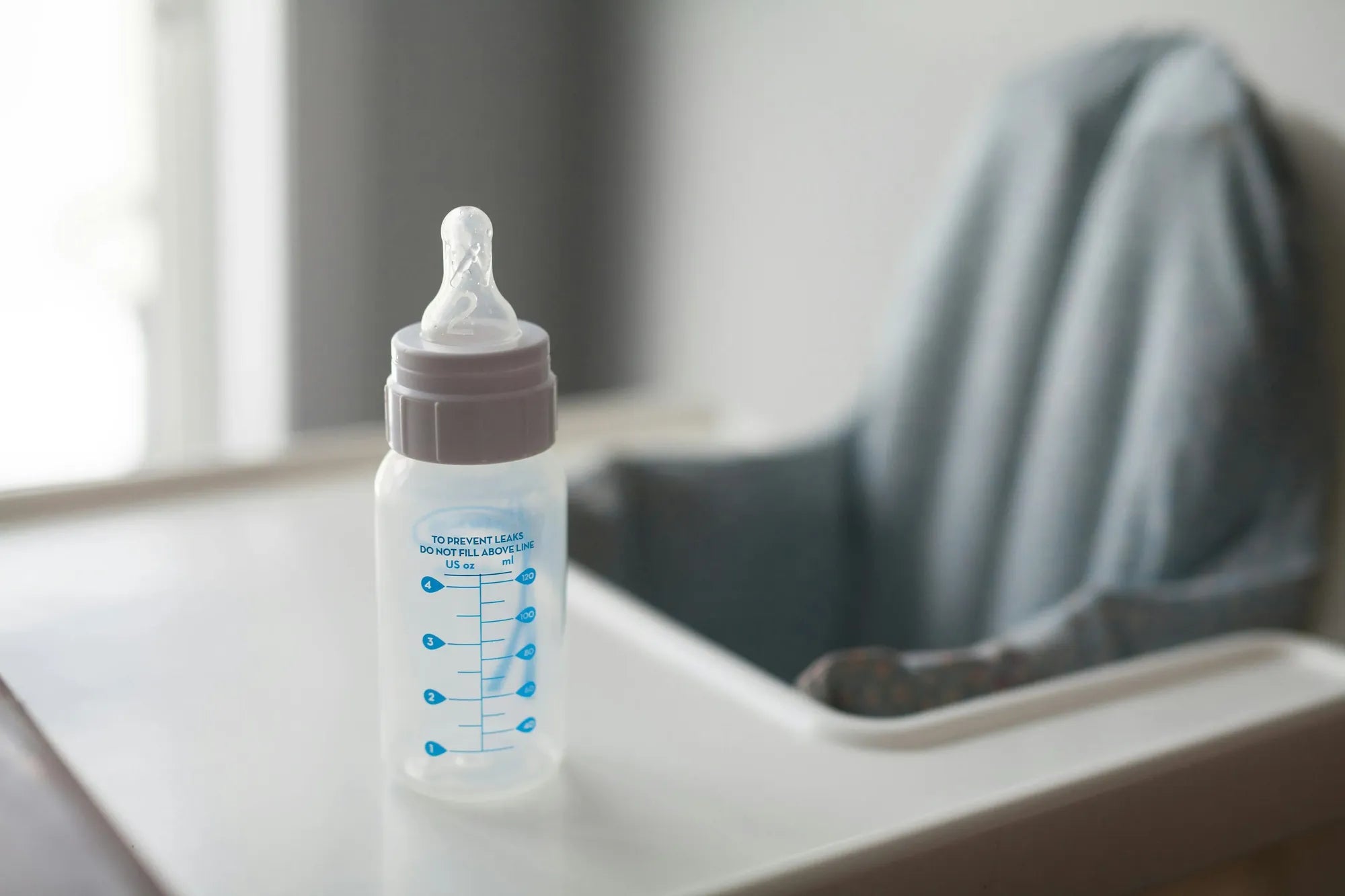Inicio
Pregnancy, Breastfeeding, and Pumping: The Ultimate Guide for Moms
Can My Baby Get Thrush from Pumped Breast Milk? What Parents Need to Know

Can My Baby Get Thrush from Pumped Breast Milk? What Parents Need to Know
As a parent, ensuring your baby's health is your top priority. One common concern among breastfeeding mothers is whether their baby can get thrush from pumped breast milk. Thrush, a fungal infection caused by Candida, can be uncomfortable for both you and your little one. Understanding how it spreads and what you can do to prevent it is essential for maintaining your baby's well-being.
What Is Thrush and How Does It Affect Babies?
Thrush is a yeast infection caused by the overgrowth of Candida, a type of fungus that naturally exists in the body. In babies, thrush often appears as white patches on the tongue, gums, or inside the cheeks. It can also cause discomfort during feeding, irritability, and diaper rash. While thrush is common in infants, it can be concerning for parents, especially when it comes to breastfeeding.
Can Thrush Be Transmitted Through Pumped Breast Milk?
The short answer is that it's unlikely for thrush to be transmitted directly through pumped breast milk. Candida is not typically present in breast milk itself. However, the fungus can be transferred from the mother's nipples to the baby's mouth during breastfeeding or through contaminated pumping equipment. If the mother has a yeast infection on her nipples or breasts, the fungus can potentially spread to the baby.
How Does Thrush Spread in Breastfeeding?
Thrush can spread in several ways during breastfeeding. If the mother has a yeast infection on her nipples, the baby can contract thrush by latching onto the breast. Similarly, if the baby has thrush in their mouth, they can transfer the fungus to the mother's nipples during feeding. Contaminated breast pump parts, bottles, or pacifiers can also contribute to the spread of thrush if they are not properly cleaned and sterilized.
Signs and Symptoms of Thrush in Babies
Recognizing the signs of thrush in your baby is crucial for early intervention. Common symptoms include:
- White patches on the tongue, gums, or inside the cheeks
- Difficulty feeding or fussiness during feeding
- Redness or irritation in the mouth
- Diaper rash that doesn't respond to typical treatments
If you notice any of these symptoms, consult your pediatrician for a proper diagnosis and treatment plan.
Preventing Thrush in Pumped Breast Milk
Preventing thrush involves maintaining proper hygiene and taking precautions during breastfeeding and pumping. Here are some tips to reduce the risk:
- Wash your hands thoroughly before handling breast pump parts or feeding your baby.
- Clean and sterilize all breast pump parts, bottles, and pacifiers after each use.
- If you have a yeast infection on your nipples, seek treatment promptly to prevent spreading it to your baby.
- Air out your nipples after breastfeeding to reduce moisture, which can promote fungal growth.
- Consider using disposable nursing pads and changing them frequently to keep the area dry.
Treating Thrush in Babies and Mothers
If your baby develops thrush, your pediatrician may prescribe antifungal medication, such as oral drops or creams. It's important to treat both the baby and the mother simultaneously to prevent reinfection. Mothers may need to apply antifungal cream to their nipples and breasts. Additionally, continue practicing good hygiene and sterilizing all feeding equipment during treatment.
When to Seek Medical Advice
If you suspect your baby has thrush or if you notice persistent symptoms despite treatment, consult your healthcare provider. Thrush can sometimes indicate an underlying issue, such as a weakened immune system or improper latch during breastfeeding. Your doctor can provide guidance and ensure both you and your baby receive the appropriate care.
Myths About Thrush and Breastfeeding
There are several misconceptions about thrush and breastfeeding that can cause unnecessary worry. One common myth is that thrush is caused by poor hygiene. While hygiene plays a role, thrush can occur even in clean environments due to the natural presence of Candida in the body. Another myth is that mothers should stop breastfeeding if they or their baby have thrush. In most cases, breastfeeding can continue with proper treatment and precautions.
The Role of Diet in Preventing Thrush
Some parents wonder if dietary changes can help prevent thrush. While there is limited scientific evidence to support this, reducing sugar intake and consuming probiotic-rich foods may help maintain a healthy balance of bacteria and yeast in the body. However, always consult your healthcare provider before making significant dietary changes, especially while breastfeeding.
Final Thoughts on Thrush and Pumped Breast Milk
While thrush is a common concern for breastfeeding parents, it is unlikely to be transmitted directly through pumped breast milk. By practicing good hygiene, sterilizing equipment, and seeking prompt treatment for infections, you can reduce the risk of thrush and keep your baby healthy. Remember, thrush is treatable, and with the right precautions, you can continue to provide your baby with the nourishment they need.
Understanding the causes and prevention of thrush can give you peace of mind as you navigate the challenges of breastfeeding. Stay informed, take proactive steps, and don't hesitate to seek medical advice when needed. Your baby's health and comfort are worth every effort.
Compartir

